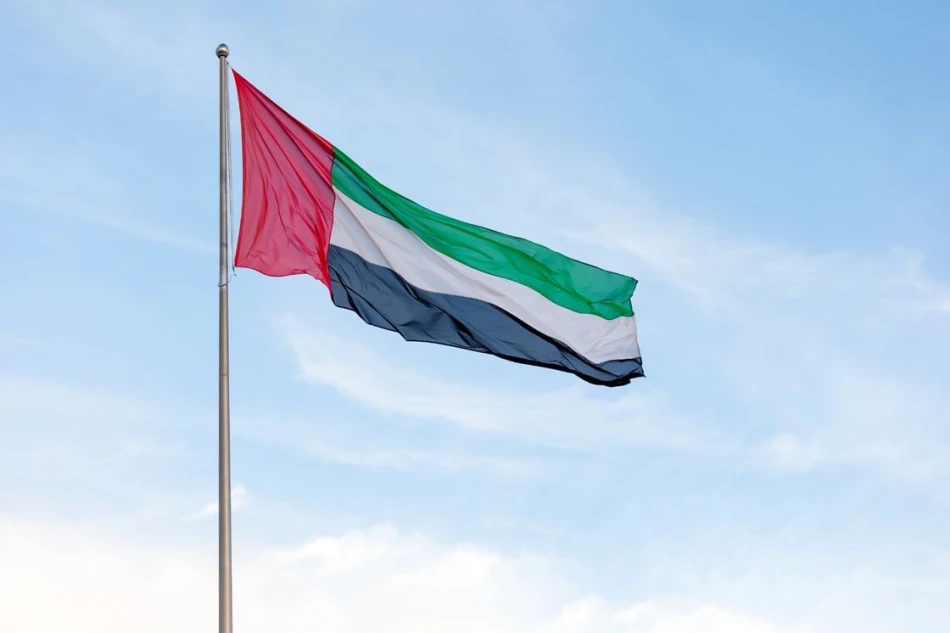
UAE Leads Arab League Meetings, Commencing Tomorrow
UAE Takes Arab League Helm as Palestinian Crisis Dominates Regional Agenda
The United Arab Emirates assumes leadership of a critical Arab League session this week, positioning itself at the center of regional diplomacy as Arab nations grapple with the escalating Palestinian crisis and broader Middle Eastern instability. The 164th ordinary session of permanent delegates convenes Monday in Cairo, setting the stage for Thursday's foreign ministers' meeting that could reshape Arab collective action.
Palestinian Question Takes Center Stage
The Palestinian issue will dominate discussions, with Arab diplomats focusing on three interconnected challenges: halting Israeli military operations in Gaza, advancing international recognition of Palestinian statehood, and developing comprehensive reconstruction plans. This represents a shift from previous Arab League sessions that often struggled to move beyond symbolic resolutions.
The timing is significant. Recent months have seen increased international momentum for Palestinian recognition, with several European nations considering formal diplomatic acknowledgment. Arab states are positioning themselves to capitalize on this global shift, potentially leveraging their collective diplomatic weight more effectively than in past decades.
Economic Integration Amid Political Turmoil
Beyond immediate crisis management, the UAE's leadership signals a pragmatic approach to regional challenges. The agenda includes substantial focus on economic cooperation and Arab integration—areas where the Emirates has demonstrated considerable expertise through initiatives like the Abraham Accords economic dividends and its role as a regional financial hub.
Strategic Economic Calculations
The emphasis on supporting the Palestinian economy while simultaneously pursuing broader Arab economic integration reflects a sophisticated understanding of modern statecraft. Unlike previous Arab League approaches that often separated political solidarity from economic realities, this session appears designed to link Palestinian support with concrete economic mechanisms.
This strategy mirrors successful models from other regions, where economic interdependence has strengthened political cooperation. The EU's evolution from economic partnership to political union offers a relevant, if distant, parallel for Arab integration efforts.
UAE's Diplomatic Positioning
The Emirates' leadership role represents more than routine rotation. Having normalized relations with Israel while maintaining support for Palestinian statehood, the UAE occupies a unique position to bridge traditional Arab solidarity with pragmatic regional engagement.
This balancing act has proven economically beneficial for the UAE, which has attracted significant Israeli investment and technology while maintaining strong ties across the Arab world. The country's approach suggests that Arab League discussions may focus more on practical outcomes than ideological positioning.
Regional Security Architecture
The session's focus on "enhancing Arab national security" and protecting "shared strategic interests" indicates recognition that traditional security paradigms require updating. With Iran's regional influence, Turkish involvement in Arab affairs, and shifting U.S. priorities, Arab states face a more complex security environment than during previous decades.
The UAE's experience in building diverse security partnerships—from France and the UK to India and South Korea—may influence how Arab League members approach collective security arrangements. Rather than relying solely on traditional alliances, the organization may explore more flexible, issue-specific cooperation mechanisms.
Implications for Regional Dynamics
This Arab League session occurs as regional power structures continue evolving. Saudi Arabia's regional assertiveness, Egypt's economic challenges, and the UAE's diplomatic innovations create a different dynamic than previous Arab League gatherings dominated by single powers or rigid blocs.
The success of these meetings will likely be measured not by traditional diplomatic communiqués, but by concrete follow-up mechanisms and implementation timelines. Arab populations increasingly expect tangible results from regional cooperation, particularly regarding economic opportunities and conflict resolution.
The UAE's chairmanship represents an opportunity to demonstrate that Arab League mechanisms can adapt to contemporary challenges while maintaining core principles of solidarity and sovereignty. Whether this translates into effective policy coordination will depend largely on member states' willingness to move beyond rhetorical unity toward practical collaboration.
Most Viewed News

 Sara Khaled
Sara Khaled






